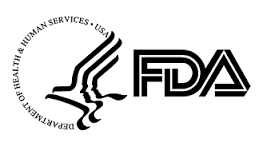
Editor's Note The US Food and Drug Administration (FDA) has designated Class 1 recalls—the most severe category indicating risk of serious injury or death—involving three systems: Atlan anesthesia workstations from Draeger, CADD-Solis ambulatory infusion pumps from Smiths Medical, and Trilogy Evo ventilators from Philips Respironics. FDA issued all three announcements…

Editor's Note Adverse events (AEs) remain widespread in perioperative care, affecting nearly one in three patients and resulting in substantial and often preventable patient harm, according to a retrospective cohort study published November 13 in The BMJ. The study analyzed 1,009 weighted admissions from a sample of 64,121 surgical patients…

Editor's Note Survival rates following out-of-hospital cardiac arrest (OHCA) have not returned to pre-pandemic levels and continue to reflect racial disparities, according to a preliminary study set for presentation at the American Heart Association’s Scientific Sessions 2024. Analyzing data from over half a million U.S. adults who experienced OHCA between…

Editor's Note Research presented at the American Society of Anesthesiologists (ASA) annual meeting has found that beta-blocker use is associated with an increased risk of postoperative stroke, particularly among Black and Hispanic patients undergoing noncardiac surgeries, Medpage Today reported October 20. According to the article, the retrospective study analyzed the…

Editor's Note Research shows repeated fasting for multiple surgeries during a single hospital stay significantly raises the risk of protein-calorie malnutrition, leading to longer recovery times, increased healthcare costs, and a higher likelihood of death. HealthDay covered the news October 21. Presented at the American Society of Anesthesiologists annual meeting,…

Editor's Note In a series of interviews with STAT, 11 cardiologists and other clinicians, including the FDA commissioner, said a crisis in primary care is dragging back progress in the nation’s cardiovascular health. Published October 15, the article begins with commentary on a stark warning from the American Heart Association…

Editor's Note The US Food and Drug Administration (FDA) has deemed the recall of Sentec Percussionaire’s Phasitron 5 In-Line Valve—a component of the manufacturer’s Intrapulmonary Percussive Ventilation (IPV) therapy system—a Class 1, the most severe category indicating serious risk of injury or death. According to the agency’s October 2…

Editor's Note The US Food and Drug Administration (FDA) designated software-related recalls for Fresenius Kabi USA’s Iveni Infusion Systems and Philips Respironics Triology Evo ventilators as class 1, the most severe category indicating serious risk of injury or death. According to FDA’s October 1 announcement, Fresenius recalled the Ivenix Infusion…

Editor's Note Although data suggest transcatheter edge-to-edge repair (TEER) using the MitraClip device may offer similar outcomes to mitral valve surgery in patients with heart failure and functional mitral regurgitation (FMR), experts have criticized the research, TCT MD reported September 1. Presented at the recent European Society of Cardiology (ESC)…

Editor's Note Research shows antibiotic-resistant infections could lead to 8.2 million deaths annually by 2050, representing a 75% increase from current rates, according to a September 17 article in HealthDay. Published in the Lancet, the new study highlights the growing threat of growing threat of antimicrobial resistance (AMR), predicting that…